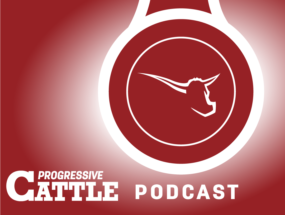China announced the tariffs on April 2, in retaliation for President Trump’s tariffs this winter on manufactured goods, steel and aluminum imports. Some of the products on China’s retaliatory list included beef, pork, soybeans, fruit, ethanol and whiskey. That doesn’t include products that are to be taxed at a higher percentage.
Trump didn’t back off from there, nor did China. In the span of three days, the two nations sparred over additional tariffs. The president of the U.S. has proposed tariffs on an additional 1,300 Chinese industrial, technological, transport and medical products, resulting in $100 billion of new tariffs.
China warned it was ready and able to take the offensive with fresh trade measures if the U.S. enforces the new round of tariffs. China’s Commerce Ministry spokesman, Gao Feng, called the U.S. response “extremely mistaken” and “unjustified,” according to a Reuters report.
“The result of this behavior is to smash your own foot with a stone,” Gao said during a news briefing in Beijing. “If the United States announces an additional $100 billion list of tariffs, China has already fully prepared and will not hesitate to immediately make a fierce counterstrike.”
Since the trade threats increased, communication between the two governments has all but ceased. While U.S. officials claim to be continuing negotiations, the Chinese delegates have denied taking part in any further talks. “Under these conditions, the two sides cannot conduct any negotiations on this issue,” Gao said in his statement.
If enacted, these tariffs could be a serious blow to the U.S. agriculture sector. U.S. beef exports to China have resumed in the past year, but if the new tariffs are enforced, that market is bound to see a significant downturn. “It is unsettling to see American-produced beef listed as a target for retaliation,” said National Cattlemen’s Beef Association President Kent Bacus in a statement.
“Sadly, we are not surprised, as this is an inevitable outcome of any trade war. This is a battle between two governments, and the unfortunate casualties will be America’s cattlemen and women and our consumers in China.”
The U.S. Meat Export Federation in a statement said the potential for a trade war is a threat to the gains made in less than a year, after a 13-year absence.
“Over the past nine months, interest in U.S. beef has steadily gained momentum in China, and our customer base has grown. But if an additional import tariff is imposed on U.S. beef, these constructive business relationships, and opportunities for further growth, will be put at risk.”
The U.S. Meat Export Federation said in the second half of 2017, following the market reopening, U.S. beef exports to China totaled 3,020 metric tons valued at $31 million. In January 2018, exports reached the highest monthly volume to date at 819 metric tons, valued at $7.5 million. ![]()

-
Carrie Veselka
- Associate Editor
- Progressive Cattleman
- Email Carrie Veselka








